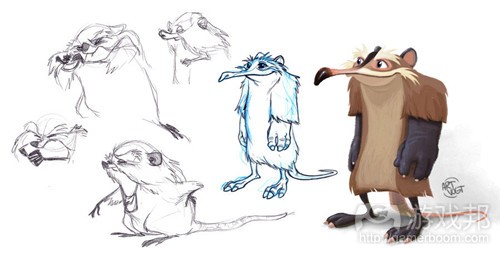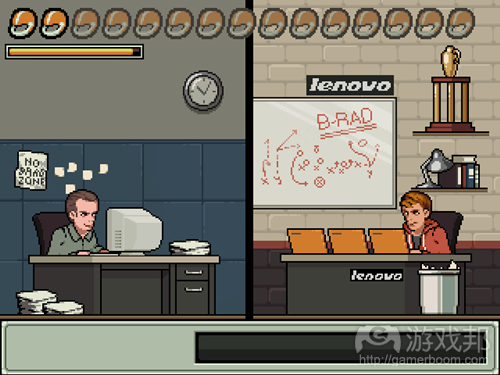美术师关于自己的报酬与工作的看法
作者:Zachary Strebeck
几个月前,我阅读了Clay Crucible Games的Michael Iachini写的一篇博客。这篇博客是关于号召其他开发者重视他们的美术师。
不管有多少开发者认为游戏设计和游戏玩法就是一切,我们都清楚游戏的外观也很重要。
为游戏创造优秀的图像是吸引Kickstarter投资者和买家的一个重要组成部分,这同样也是大多数人的第一印象,即他们在更深入体验真正游戏玩法之前所看到的。就像Michael所说的:“如果你打算在Kickstarter集资活动中获得成功,你就需要想办法让你的游戏看起来足够吸引人。”
本着Michael文章的精神,我决定联系一些我所认识的免费游戏美术师,并听听他们对于自己报酬的看法。所以,让我介绍Art Vogt和Lux,这两位非常棒的美术师很慷慨地回答了我的问题。
关于报酬:
当我问他们关于自己真正想要获得的报酬,他们的答案非常相似。Lux说道,对于较小的项目,她希望能够预先获得一半的付费,而剩下的钱等到递交作品时再付清。而关于长期合作项目,她希望能够事先收到一部分费用,然后每隔几周能够得到一些支付。
Art表示,对于较小的项目他通常都不会要求预先支付,但对于较大的项目,他便会要求对方事先支付一部分费用。他说道,对于他过去所合作过的客户,即使未收到预先付费,他也总是会按时开始工作。似乎在美术师和客户之间,信任扮演着非常重要的角色。
那么在游戏赚钱后的收益是如何非配的?美术师是否会得到适当的分配?
尽管他们两个人都做过这种类型的交易,但是他们提醒美术师门一定要正视期待并做好接受最后什么都不能分配到的准备。Art说道:“不要指望能从这类型交易中分到钱。就像我总是假设自己从不会从这些工作中得到报酬。”
为什么会这样。“我通常都是为一些小型项目工作。因为面对更大的项目,你就需要花费更多的钱,并且有可能需要承担更大的风险。而如果只是一天工作的话倒还不错。”
Lux认为尽管许多年轻的美术师接这些工作是为了积攒经验,“但是对于专业美术师的作品和时间来说,这却是一种不尊重的表现。”
她补充道,这会导致一些开发者认为她给自己的定价太高,并导致一些“业余”美术师所设定的期待值过低。Art表示,如果他清楚开发商的情境的话那就不是什么冒犯,但这只适用于他所尊重并认识且没有多少钱的合作对象。他告诫那些面对同样交易的开发者和美术师门应该白纸黑字写清楚。
当收益分享是作为唯一的报酬形式时,Lux通常都会拒绝接受这份工作。她说道:“尽管我理解一些小型开发商没有足够的钱支付给美术师,但我认为除非你准备好能支付给他们费用的钱,否则你就不要想着去外面找美术师。”
那知识产权的所有权是属于谁?美术师是否需要保留他们作品的版权?
在回答中,Lux表示通常情况下都是客户拥有作品的版权。当然了他们需要支付给她一定费用。考虑到作品是基于客户的理念,所以Art的想法也是一样,“我不认为这是真正属于我的作品,这应该是他们的,他们也为此付了钱。”
然而如果作品是基于他自己的理念,Art便不愿意失去作品的版权。他建议其他美术师能够聘请一名律师去拟定一份合适的合同,并涵盖一些基本内容以及相关费用说明。他说道:“你肯定不愿意自己花了许多时间所创造的作品摊上一笔糟糕的交易。”
就我而言,我经常会在美术师合同上添加一个条款,即让他们能够基于自我推广的目的去使用这些作品。这让美术师能够将这些作品放到自己的作品集中,而作品的所有权仍属于支付他们费用的开发商。
(本文为游戏邦/gamerboom.com编译,拒绝任何不保留版权的转功,如需转载请联系:游戏邦)
Hiring a gamedev artist? Here are some things to keep in mind
by Zachary Strebeck
A few months ago, I read a blog post by Michael Iachini of Clay Crucible Games (who I interviewed here about his company). The post was a call to other developers to pay their artists.
No matter how much many developers like to think that the design and gameplay of a game is all that matters, we all know that the looks of the game DO matter.
Getting great art for a game is an important part of attracting Kickstarter backers and buyers, as it is the first thing that most people see, long before they experience the actual gameplay. As Michael says, “If you’re going to run a successful Kickstarter campaign, it’s going to have to look good.”
In the spirit of Michael’s post, I decided to reach out to a few freelance game artists that I know and get their opinions on a few issues regarding payment for their work. So, let me introduce Art Vogt and Lux, two wonderful artists that have been very generous with their time in answering my questions.
Let’s see what they said about these issues, shall we?
Getting paid:
When I asked the artists about how they generally prefer to get paid, they had similar answers. Lux says that she prefers to get about half of the fee up front, with the remainder due upon delivery, for smaller jobs. In longer-term situations, some money up front is required along with payment charged hourly every few weeks.
Art says that he doesn’t usually ask for payment up front on small jobs, but larger jobs will usually demand some portion of the fee beforehand. He says that, for clients he has worked with in the past, he will often start working even while waiting on that initial payment. Trust, it seems, plays a big hand in the relationship between artist and client.
What about sharing revenue after the game makes money? Isn’t that an appropriate form of payment?
While both have done this type of deal, they caution artists to be realistic about expectations and be prepared to get nothing in the end. Art says, “Don’t EVER count on money from these kinds of deals. I ALWAYS assume I won’t ever get paid from jobs like these.”
Why do them, then? “I usually only do this for smaller projects. The larger the project, the more time you have to commit and the more you risk losing out on your time you spent working. It’s nice to do this stuff if you have a day job already.”
Lux believes that, though many younger artists do this kind of work for the experience, “this creates a general air of disrespect for professional artists’ work and time.” This is a similar sentiment to what Michael Iachini said in his post on the subject.
She adds that it has led to some developers believing that she is overcharging for her services, as “amateur” artists will often set the expectation much lower. Art thinks that there’s no offense if he understands the developer’s situation, but will generally only work for free or a low fee when it is someone that he respects and knows they just don’t have the money. He cautions developers and artists alike who get into this kind of deal to get it in writing (I concur, of course).
When a revenue share is offered as the only compensation, that is often enough for Lux to turn down the offer. “While I understand that many small-time developers just can’t afford to pay an artist, I don’t think you should seek one out unless you’re prepared to offer them a fair wage,” she says. I agree.
What about intellectual property ownership? Do artists need to retain copyright to their work?
In her answers to me, Lux indicated that she generally has no problem with the client owning the copyright. This is, of course, provided that they pay her for the work. Art has a similar idea regarding work based on clients’ ideas, “I don’t see it as MY work, it’s theirs, they paid for it.”
However, if the work is based on his own ideas, Art is less willing to sign those rights away. He advises other artists to get a lawyer to draft a proper contract that covers their bases and gets them the compensation they deserve. “You can’t afford to be on the bad side of a deal for work that you spent tons of time developing,” he warns.
For my part, I often add a clause to artist contracts granting them a license to use the work for self-promotional purposes. This allows the artist to use the work in their portfolio, while the ownership of the work lies with the developer that paid them for it.
For assistance with the contracts side of game development, why not contact a game lawyer? Also, check out my free eBook on game development legal issues for more info on the problems developers might face, from a legal perspective.(source:gamasutra)









































 闽公网安备35020302001549号
闽公网安备35020302001549号